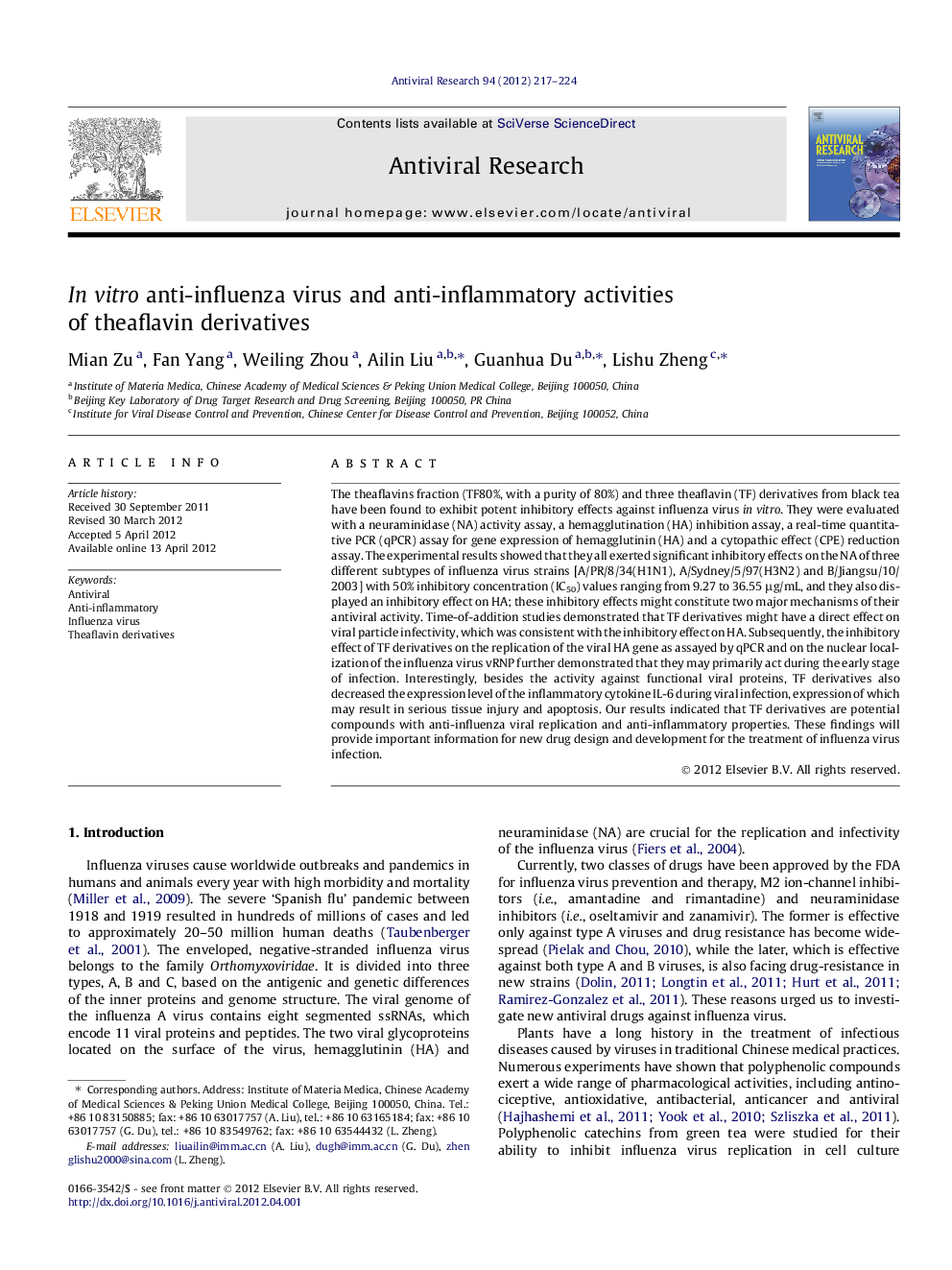| Article ID | Journal | Published Year | Pages | File Type |
|---|---|---|---|---|
| 5822716 | Antiviral Research | 2012 | 8 Pages |
The theaflavins fraction (TF80%, with a purity of 80%) and three theaflavin (TF) derivatives from black tea have been found to exhibit potent inhibitory effects against influenza virus in vitro. They were evaluated with a neuraminidase (NA) activity assay, a hemagglutination (HA) inhibition assay, a real-time quantitative PCR (qPCR) assay for gene expression of hemagglutinin (HA) and a cytopathic effect (CPE) reduction assay. The experimental results showed that they all exerted significant inhibitory effects on the NA of three different subtypes of influenza virus strains [A/PR/8/34(H1N1), A/Sydney/5/97(H3N2) and B/Jiangsu/10/2003] with 50% inhibitory concentration (IC50) values ranging from 9.27 to 36.55 μg/mL, and they also displayed an inhibitory effect on HA; these inhibitory effects might constitute two major mechanisms of their antiviral activity. Time-of-addition studies demonstrated that TF derivatives might have a direct effect on viral particle infectivity, which was consistent with the inhibitory effect on HA. Subsequently, the inhibitory effect of TF derivatives on the replication of the viral HA gene as assayed by qPCR and on the nuclear localization of the influenza virus vRNP further demonstrated that they may primarily act during the early stage of infection. Interestingly, besides the activity against functional viral proteins, TF derivatives also decreased the expression level of the inflammatory cytokine IL-6 during viral infection, expression of which may result in serious tissue injury and apoptosis. Our results indicated that TF derivatives are potential compounds with anti-influenza viral replication and anti-inflammatory properties. These findings will provide important information for new drug design and development for the treatment of influenza virus infection.
⺠Theaflavin extract and its three derivatives displayed anti-influenza viral activity. ⺠Their action mechanisms are through inhibition of neuraminidase and haemagglutinin. ⺠They also decreased the expression level of IL-6 during viral infection. ⺠Theaflavins are potential natural compounds for influenza prevention and treatment. ⺠These findings will be important for the development of anti-influenza drug.
